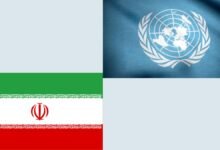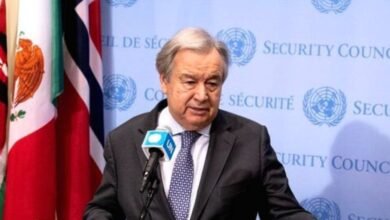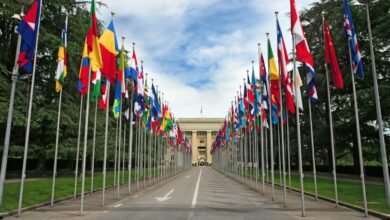UN Transfers Over $2.9 Billion to Afghanistan, Reveals SIGAR Report
SIGAR's report reveals details about the United Nations' substantial financial support to Afghanistan, emphasizing challenges and potential risks associated with cash transfers amidst the country's economic and humanitarian crises.

Kabul: The U.S. Special Inspector General for Afghanistan Reconstruction (SIGAR) disclosed that the United Nations has facilitated the transfer of over $2.9 billion to Afghanistan since August 2021. This financial injection, backed by contributions from international donors, aims to address the severe economic and humanitarian crises triggered by the collapse of Afghanistan’s republic government in August 2021.
The primary contributor to this substantial aid in the United States, which has contributed approximately $2.6 billion during the specified period. This financial support is directed towards the UN, various private international organizations (PIOs), and non-governmental organizations (NGOs) operating in Afghanistan.
Of the U.S. funding, more than $1.7 billion, sourced from the State Department and the U.S. Agency for International Development (USAID), has been allocated for humanitarian initiatives led by PIOs and NGOs, including the UN, the World Bank, and the Colombo Plan. However, SIGAR’s report highlights challenges in tracking individual donor allocations within collective UN accounts.
After the collapse of Afghanistan’s republic government, international reluctance to engage with the country’s banking sector increased due to concerns about sanctions violations and inadvertent support for the Taliban. The U.S. Department of the Treasury blocked Afghanistan’s central bank, Da Afghanistan Bank (DAB), from accessing its U.S.-held assets, exacerbating the economic and humanitarian crises.
In early 2022, international donors and the UN agreed to resume assistance, leading to the physical transportation of U.S. currency to Afghanistan for operational and humanitarian expenses. The UN, in collaboration with the State Department and the Treasury, is identified as the exclusive entity handling cash procurement and transportation for humanitarian aid in Afghanistan, according to SIGAR’s investigation.
The UN initiated cash transfers in December 2021, funding 19 of its entities, funds, and programs, along with 48 PIOs and NGOs, including the World Bank and the Asian Development Bank. At least 80 cash purchases are conducted for Afghan delivery, given the challenges in international wire transfers and the scarcity of domestic currency.
The SIGAR report emphasizes the UN’s commitment to continuing these cash transfers until improvements are made in Afghanistan’s banking sector. However, concerns are raised about potential indirect benefits to the Taliban, as private banks often acquire local currency from the Taliban-controlled DAB when conversion to the local currency is necessary.
The SIGAR report underwent a thorough review by the State Department, USAID, and the Treasury. The State Department clarified aspects of Afghanistan’s banking sector, USAID expressed gratitude for the review, and the Treasury had no formal comments. SIGAR updated the report based on feedback from these agencies, shedding light on the intricate financial and humanitarian landscape in Afghanistan.







